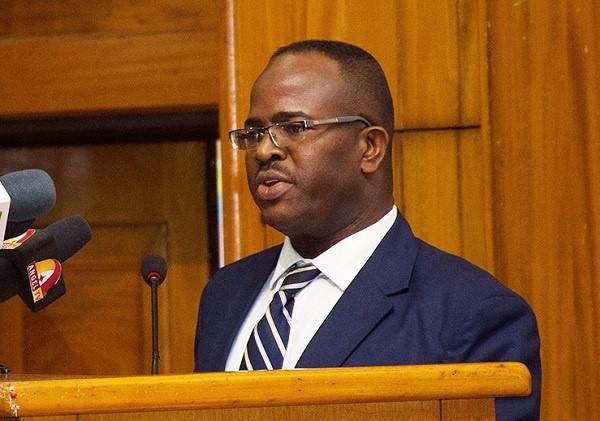While government is yet to officially write to the Chamber of Mines on the proposed gold for oil barter policy, the Chamber is wary of how having too much cedis could affect its members.
The government wants large-scale miners to sell, at least, 20 percent of their gold in local currency to Bank of Ghana toward a gold for oil barter policy. But the Chamber says the policy, combined with an already existing revenue repatriation programme, would now mean miners are retaining as much as 50 percent of revenue in cedis, a situation it cautioned could have very dire consequences for miners given the wobbly nature of the domestic currency.
“If you combine the existing repatriation arrangement with the 20 percent, effectively mining companies are expected to convert 50 percent of their revenue into Ghana cedis and that maybe too much for the mining industry. We will continue to discuss but we want to pitch at a point where we will be able to help the country and, at the same time, we are not going to make the industry worse off.
“We may be sitting with so much cedis, and once we sit with so much cedis – a volatile currency which is wobbly – then, it actually affects you as well. So we need to calibrate it and put it at a point both parties will be happy,” says the Chamber’s Chief Executive Officer, Sulemana Koney.
Mr. Koney spoke to the B&FT on the sidelines of the 2022 Ghana Mining Industry Awards in Accra, and said much proper engagements are needed to strike a fine balance between what the industry can do to help the government and maintain a vibrant industry.
Asked if the Chamber, which is the umbrella body of all large miners, has been officially informed about the proposed oil for barter policy, he said: “As far as we are concerned, we have had conversations but essentially on the back of mutually agreed points or positions. So it is something we need to have proper conversations with the government on, but we have not had a formal communication from the Minerals Commission or sector ministry or possibly the Bank of Ghana.
“We have had conversations, no two ways about it, with the Governor of the central bank, the Vice President and Members of Cabinet that our expectations or outstanding was that it was going to be a short-term programme. We had targets for 2022 and 2023; that is what we had and we have had the occasion to find out from our member-companies how much of the target presented to us by the BoG and we have gone back to BoG to say this is what our members can do.
“So, yes we have not had a formal communication, but…we need to sit and discuss how we can work together to make sure we balance the industry because it is important that we continue to have viable mining industry,” he further added.
He also clarified that the underpinnings of the gold for oil exchange policy and the ongoing gold purchase programme by Bank of Ghana were different, as the former seeks to accumulate domestic mined gold in exchange for finished petroleum products, which the economy spends about US$380million importing every month.
This year alone, the cedi has lost over 53 percent of its value; and the gold for oil exchange policy, which Vice President Dr. Mahamudu Bawumia says would save the economy US$3billion in foreign reserves, when implemented, is one of a number of desperate measures to arrest the persistent depreciation of the domestic currency.
Meanwhile, questions have been asked about the viability of the policy, particularly how the government intends to raise as much as US$380million monthly to buy gold in exchange for petroleum products.
For instance, the policy has been described as premature and one with the potential to breed corruption by two leading energy sector civil society organisations – Africa Centre for Energy Policy (ACEP) and Institute for Energy Security (IES).
“We can always stress-test policy before announcements. Gold for oil is weird,” says Benjamin Boakye, ACEP’s Executive Director. “The common denominator is the dollar. Total gold export was US$4.8billion last year, just about how much we needed to import refined products.”
“Our monthly import bill for finished petroleum products is roughly US$380million. Can government get gold to the tune of US$380million every month for exchange of finished products?” Nana Amoasi VII, Executive Director of IES, asked.
He warned that barter is not a transparent arrangement, and could breed corruption.
He said similar arrangements – including Iran’s ‘oil for food programme’ in the 1990s, Nigeria’s recent ‘crude oil for finished products’ programme – all became avenues for corruption.










